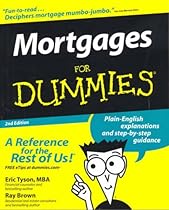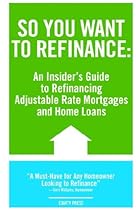by Broderick Perkins
© 2007 DeadlineNews.Com
Deadline Newsroom - Lower interest rates could offer some financial buoyancy for those looking to refinance before they get in over their heads.
Home mortgage interest rates have been flat or falling since early October. Last week, fixed interest rates on 30-year conforming loans averaged 6.20 percent. Rates haven't been lower since the week ending May 10 this year, when the average was 6.15 percent.
Freddie Mac's Weekly Mortgage Market Survey said the 6.20 percent average interest rate on a 30-year fixed-rate mortgage was down from a week earlier when it averaged 6.24 percent.
The falling average rate probably won't help those who purchased a home a year or two ago, especially if they had a small equity stake in their home.
"The problem is a lot of people in those products is they don't have any equity in the house and lenders want equity to refinance," said Glenda Queensbury, a mortgage adviser and real estate agent at Referral Realty in San Jose, CA.
However, there could be a safe harbor available for others facing a resetting adjustable rate mortgage (ARM) with the potential for higher rates and unmanageable mortgage payments.
The key, say the experts, is to examine your options early.

"Absolutely. When people start feeling the pinch don't wait until you are delinquent. The more delinquent you become the more options that will start going off the table" says William Higgins, chief lending officer of online bank Ing Direct.
Higgins says it's a good idea to visit your existing lender first. That's especially true if your lender doesn't sell loans and has a vested financial interest in keeping its portfolio intact. Don't overlook other banks, credit unions and other lenders that retain loans.
"Behaviorally we might be more strict, but that's the important thing. We worry more about what happens because whatever happens to the borrower, happens to us. Portfolio lenders also have an advantage of not being in the unpredictable secondary market," Higgins said.
Higgins says in-house lenders are generally easier to work with in terms of refinance options, including loan modifications to help homeowners retain their existing loan and get out of trouble.
Eric Nelson, mortgage broker and owner of the Honte Group in Campbell, said "We have found that lenders will allow clients to retain their existing second mortgage, to allow them to refinance the first mortgage into better terms."
Queensbury said in-house lenders also have the option of trading more lenient underwriting standards for higher interest rates, a strategy that can give borrowers more wiggle room to refinance.
Trading an ARM for a fixed rate that's higher now isn't a bad deal if that ARM rate will eventually become unaffordable.
A 40-year mortgage also can help offset the cost of trading an ARM for a fixed rate, due to the longer term's relatively smaller payments.
"If an in-house lender loosens qualifications, that's a risk and they have to compensate for that, but at least the person has a better chance of getting a loan," Queensbury said.
Nelson said another strategy for those holding a first and second mortgage is to change the mortgage split to keep them both at or below the cheaper conforming loan rate.
"A client with a total of $500,000 in mortgages is someone I would have their first mortgage be conforming at $417,000 and the second be $83,000 to meet lenders' stricter guidelines and still create great options for the client," said Nelson.
Homeowners with the most options to refinance have both equity and pristine credit, say the experts.
Homeowners thinking about refinancing should pull their credit report from the only federally-sanctioned free service, AnnualCreditReport.com.
"If you have the equity, your credit must be pristine with no blemishes. If your credit is just basic or mediocre, you are not going to get a better rate," said Queensbury.
Trading one ARM for another ARM isn't out of the question as long as the new ARM is a hybrid that provides enough breathing room.
"The customer needs to figure out how long they will be in the house or how long before they expect to borrow money again. A 3/1 hybrid is a hard bet. I'd see five years as short as you want to go right now," said Higgins.
Queensbury advises trading one ARM for another only if a fixed 30 year loan is unaffordable.
"Consider a 10-year interest-only payment or try to get at least a five-year," she said.
An experienced mortgage broker or adviser can help homeowners sort through options from a variety of lenders to determine the most viable mortgage, fixed or adjustable.
Queensbury says examine all potential options by comparing all loan costs of each refinance from a variety of sources -- in-house lenders, secondary market lenders and brokers.
"For people who are in a situation where they can refinance, sit down and let them show you and talk to you about everything they offer," she said.
Above all, move fast. The mortgage market is as volatile as it's ever been. Rates could quickly reverse course and head back into choppy waters.
• Free Yourself, Others From The Mortgage Morass
• Six Degrees of Refinancing
• To Refinance Or Not To Refinance
• More Time To Ponder Three Mortgage Tips
• Coping With A Changing Mortgage Market
• More From DeadlineNews.Com's 'Post-Boom Survival Guide'
If you don't get it here, you don't get it.
Advertise on DeadlineNews.Com
© 2007 DeadlineNews.Com
Broderick Perkins, an award-winning consumer journalist of 30 years, is publisher and executive editor of San Jose, CA-based DeadlineNews.Com, a real estate news and consulting service, and the new Deadline Newsroom, DeadlineNews.Com's new backshop. In both cases, it's where all the news really hits home.
DeadlineNews.Com's Editorial Content Is Intellectual Property • Unauthorized Use Is A Federal Crime
Tuesday, November 27, 2007
Smoothing The Rough Road To Refinancing
From The
Deadline Newsroom
on
11/27/2007 11:17:00 PM
![]()
Labels: Broderick Perkins, Deadline Newsroom, DeadlineNews.Com, mortgage, mortgage rates, refinance
Subscribe to:
Post Comments (Atom)


No comments:
Post a Comment